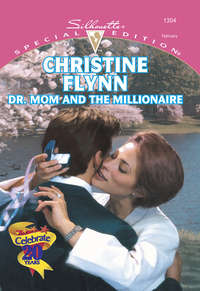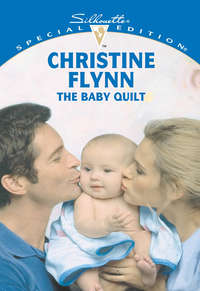
Полная версия
The Sugar House
“I didn’t come just to visit, Emmy.” With another glance toward the fifty pounds of fur and snarl that had yet to move from her side, he took a step back himself. “There’s something I need to do, but I can’t if you won’t hear me out.”
“If you’re here to tell me you bought the property next door, it’s not necessary. Everyone already knows.”
He would have been surprised if everyone hadn’t. “I take it the local grapevine is still intact.”
“Word gets around.”
“Word in this case is incomplete. No one knows what I want to do with that land.”
“What you do with it is your business.” Deliberately she moved around him. “And the community council’s. They’ll try to block whatever you do.”
“The community council has nothing to say about this,” he insisted, stepping into her path again, mindful of her guard dog. “I bought it to give it back to your parents.”
Blocked in her tracks once more, she glanced back up. An uncertain frown shadowed the gray of her eyes.
“My father passed away last year,” he explained before she could decide to bolt again. “Mom never felt right about what had happened between our families. Neither did I. I want to give the property back. And to apologize.
“I hadn’t realized your parents were gone,” he told her, relieved that she was staying put. He wondered what had happened to Stan and Cara, decided now wasn’t the time to ask. “When I checked with the real estate broker I used to see if the property was available, I was told that Larkin Maple Products was still in operation. I assumed your dad was still running it, so the quitclaim deed I brought is in his name.”
He touched the jacket pocket that held that deed, thinking of what he needed to do now. “I’ll redraw it for you. It won’t take long. I just need to know your full name. I’ve always known you only as Emmy.”
His glance shot to her left hand. The way she had her cuff pulled to her palm, he couldn’t tell if she was wearing a ring. “Is it still Larkin, or are you married now?”
For a moment all Emmy could do was stare at the man blocking her path to the sugar house.
He wanted to give back the property. Of all the possible scenarios she might have imagined, this one had never occurred to her. It had apparently never occurred to anyone.
Her only thought now was that he’d made a long trip for nothing.
“My name doesn’t matter.”
“Of course it does. I can’t change the deed without it.”
“You don’t need to change it.”
“Emmy,” he said, suddenly sounding terribly patient. “I’m not a tax attorney and I’m not sure what estate laws are here, but it’s to your advantage to have the deed recorded in your name. That way there will be no questions. No hassles. It’ll just be yours.”
“I don’t want it.”
The dark slashes of his eyebrows merged. It seemed he wasn’t prepared for that, either.
They were even, she supposed. She wasn’t at all prepared herself. Not for his unexpected offer. And definitely not for his disquieting presence. As he towered over her, his cool blue eyes intent on her face, she could practically feel his tension snake inside her. The sensation disturbed her as much as the odd heat his scrutiny caused to radiate from her breasts to her belly.
Pulling her glance from his, she let it fall to where the hem of his comfortably worn jeans bunched over a pair of heavy and expensive hiking boots. She didn’t feel terribly trusting of him, and he unnerved her in ways she wasn’t prepared to consider, but it wasn’t like her to be unfair.
His father was responsible for what had happened to her family. And Jack had earned a reputation, too. Everyone knew he was responsible for the scar that hooked down from the corner of Joe Sheldon’s mouth. Still, he had come to apologize. For himself, apparently. And for his mother. It sounded as if the matter had weighed for a long time on Ruth Travers.
As badly as Emmy wanted the past to stay there, she couldn’t deny someone their need to try to set it right.
“I accept your apology,” she told him. She had no desire, however, to hear whatever else he might have said beyond I’m sorry. All she wanted was for him to leave. “But I have no need of anything else.
“Please excuse me.” Ducking her head again, she backed away, hoping he would just let her go. She’d lost her appetite for supper. Even if she hadn’t, she had no time to put anything together now. “I’m boiling,” she said, using the sugar-makers’ term for making syrup. “I have to get back to work.”
Wanting desperately to avoid the feelings and memories his presence elicited, she quickly retraced her path toward the sugar house, Rudy on her heels. Part of her couldn’t believe how discourteous she was being. No one ever came to her home that she didn’t take a minute to visit with them. But, then, her callers were inevitably neighbors or summer guests of her bed-and-breakfast, and she would invite them in to talk while she worked. More often than not she offered coffee or cocoa to go with their conversation. Or, in summer, when she worked in her garden, she offered lemonade or iced tea she made by setting a clear jug of water and tea bags in the sun because the tea tasted sweeter that way.
The twinge of guilt she felt leaving him standing there faded beneath an equally inherent need for self-preservation. It was probably horribly selfish of her, she admitted, watching Rudy race ahead, but she was far more interested in preserving the already shaken tranquillity she’d finally found than in being hospitable.
Emmy wasn’t running, but she wasn’t wasting any time getting away from him, either.
With that less-than-encouraging thought, Jack jammed his hands on his hips and watched Emmy motion her loping dog toward the trees and the distant sugar house.
It wasn’t often that he underestimated a situation. As driven and determined as he could be when it came to achieving an end, he’d learned to plan for contingencies, to expect the unexpected and always have a plan B. With everything else he’d been dealing with lately, however, he’d obviously forgotten to consider that it could be a Larkin other than Stan running the sugaring business.
Once he’d learned that the operation still existed, he had simply assumed Stan was still running it. He had considered that Stan and Cara could be divorced by now, but it had never occurred to him that the man would have passed away, much less that his wife would have, too.
He definitely hadn’t considered that the property would be refused.
The cold breeze carried off the fog of his frustrated breath. For the past month he’d felt as if he’d been running a marathon. Now he felt as if he’d just run himself straight into a wall. Not that a wall would stop him. He just needed to find a way over, under or around the obstruction. Given that this particular obstruction wouldn’t even talk to him at the moment, he headed back to his car.
It had been his goal to acquire and return the property ever since he and his mother had found a copy of the papers securing the money Stan had borrowed from him in his dad’s desk. They had gone through the desk the day after his father died looking for insurance papers and, for the first time in years, he and his mom had talked about what had happened in Maple Mountain.
From the time his father had moved them all to Maine to escape the ostracism that had befallen the entire family, the subject had been forbidden in their home. That meant no one could talk about the way the locals had condemned his father for foreclosing on Stan’s property. Or how his mother’s friends had backed away from her because guilt by association condemned her, too. She’d told him she hadn’t been able to tell anyone how opposed she’d been to what his father had done because he was her husband, and it hadn’t felt right to speak publicly against him.
Jack understood all too well the dilemma his mother had faced. He’d often hoped he’d misunderstood what had happened, and that there had been some greater justification for his father betraying his friendship with Stan the way he had. He’d hoped his clashes with his former friends when they’d called his father a thief and backstabber had been justified, too. At the time, he had refused to stand back and not defend his family name—though looking back now, he figured the anger he’d felt had less to do with the pushing and shoving that had come with the taunting than the fact that he’d felt so betrayed himself.
At seventeen, he had been torn between loyalty to a father he’d looked up to and feeling that what his father had done was totally wrong. But the day they’d found the papers, his mother had confirmed that he hadn’t misunderstood the basic facts at all. Stan Larkin had only borrowed five thousand dollars on property worth three times that. Granted, Stan hadn’t paid the loan when it was due, but his father hadn’t been willing to give him extra time and had sold the property for a fraction of what it had been worth. His dad’s only concern had been getting the money back without any further delay.
His mom had since shared a few details that had apparently justified the action in his father’s mind. And, taken literally, Jack could see the man’s logic. His father had worked hard for his money, and he’d been watching out for his own family. But in Jack’s mind that didn’t forgive why he hadn’t sold the property for nearer to what it was worth and given Stan the difference.
All his father had cared about was getting back his own. And he had. But it had cost him and his family dearly.
Jack passed an upright post supporting a wood oval carved with Larkin’s Maple Products and turned on to the snow-packed and winding mountain road that led the two miles into the little community. As he did, he had the disturbing feeling that what his father had done might have cost the Larkins even more.
That uncomfortable thought curled like a fist in Jack’s gut.
There wasn’t much room for deviation in his schedule, but he wouldn’t leave without setting things as straight as he could. He’d planned to be home no later than midnight that night. But as long as he could be back in Manhattan by five tomorrow afternoon, he would have time to finish packing up his apartment before the movers arrived Monday morning. As soon as they left, he would head for the office he was taking over in Boston.
From the day he’d started, nine years ago, he’d systematically worked his way up the corporate ladder of the billion-dollar Atlantic Commercial Development Corporation. He’d put in practically twenty-four hours, seven days a week for the past two years for his latest promotion to regional vice president. His perks alone were worth three times his original salary. Because he wasn’t through climbing yet, and because he had major projects on the table, he didn’t want anything to interfere with his 7:00 a.m. breakfast meeting Tuesday morning with his staff.
In the meantime he needed Emmy’s legal name. He also needed a notary public to notarize his signature, and a photocopier to copy the new document. He had a blank quitclaim deed in the file in his back seat that he’d brought in case Stan had wanted his wife’s or their company’s name on the document, so redrawing it wouldn’t be a problem. Once that was done, he’d head back to the Larkin place and hope Emmy would be more receptive to accepting the property. Heaven knew he didn’t want it.
Chapter Two
M aple Mountain would never be known as a destination spot. As far as Jack was concerned, the place was lucky simply to have a spot on the map. Except for the three seasonal festivals the community sponsored to raise money for its coffers, most visitors were simply passing through.
Those who did stop for a night could find accommodation at one of the few bed-and-breakfasts in the area, though they were seldom open in winter except for Maple Sugar Days, or they could stay at the Maple Mountain Motor Inn—which stayed open mostly to accommodate the guy who ran the snow plow when the weather turned.
With no other option, Jack checked into the motor inn. The long, low building on the narrow main road consisted of eight rooms that opened on to a snow-covered parking lot and a postage-stamp-size reception area decorated with knotty pine walls and an impressive set of antlers. The sign on the front door claimed the place to have the friendliest accommodations in Vermont’s Northern Kingdom.
He didn’t know about the accommodations themselves, but their owners didn’t exactly live up to the advertising. The Mrs. part of the operation didn’t, anyway. The late-thirty-something Hanna Talbot, whose grandparents had owned the motel before they’d retired years ago, had taken one look at him when she’d answered the desk bell and her smile had died.
“What can I do for you, Jack?” she asked, sounding as if she’d heard he was around.
“I need a room for the night. Do you have anything available?”
He’d asked for the sake of polite conversation. All eight room keys hung on their hooks. The parking lot was empty. Yet, for a few rather uncomfortable seconds, he thought the woman might actually claim they were booked.
“I’ll need your driver’s license,” she said instead.
He reached for his wallet, only feeling slightly relieved. He didn’t remember much about the curly-haired brunette other than that she was a few years older than he was and that her family had always owned the place. She clearly remembered him, though. Or, at least, judging from the chill that was definitely more censure than natural reserve, she remembered his family.
Cooking smells, the low drone of a television and children’s voices drifted in from the open door behind her.
“New York,” she said, writing down his address. “I thought your family moved to Maine.”
“They did.” He handed over a credit card, wondering at the length of some people’s memories. “I’m the only one in New York.”
Looking as if she couldn’t imagine why he would have wanted to come back, she pushed his license across the shiny wood surface. “Long drive.”
It had been a long drive, he thought. A little over six hours, actually. Three of those on snow-packed roads. But driving made more sense than flying or taking the train. There were no direct flights from JFK or LaGuardia to the nearest airport in Montpelier, so it took as much time to drive as it did to fly. At least behind the wheel of his car, he felt as if he were constantly making progress.
There wasn’t much that frustrated him more than hanging around airports accomplishing nothing. Except, possibly, accomplishing nothing while being stuck overnight in a place he didn’t want to be.
Feeling that the less he said the better, Jack’s only response was a faint, acknowledging smile as the woman handed his card back.
The proprietress of the little mom-and-pop motel didn’t seem to expect a comment, anyway.
“There’s a potluck at the community center tonight, so Dora’s is closed,” she informed him, speaking of the diner down the road. “My family’s headin’ over there now. Since there’s nowhere else to get a meal, I suppose I can bring you somethin’ for supper from there.”
She seemed to know that he wouldn’t want to eat at a community dinner himself. Or maybe she was thinking more that he wouldn’t be welcome there. From Emmy’s flat tone when she’d said everyone knew he’d bought the acreage next to hers, he’d be willing to bet everyone at that dinner would have an opinion about that acquisition, too. No Travers had been able to do anything right by the time they’d moved. He was getting the distinct feeling from this woman that no Travers could do anything right now, either.
What bothered him even more was the surprising depth of her apparent disapproval of him. He’d barely known the woman. Yet, her censure felt as fresh as what he’d felt from others when his family had left.
“I appreciate the offer, but I’ll get something on my own.” The burger he’d grabbed at a drive-through five hours ago had long since worn off, but he wasn’t about to put her out. “What about the burger place?” A little repetition wouldn’t kill him. “Is it still here?”
“Closed for the winter. Most everything around here is.”
Hunger seemed to increase in direction proportion to his diminishing culinary options. “How about the general store?” He’d seen the lights on inside when he’d driven past it a few minutes ago. “How late is it open?”
A child’s voice grew louder. Another matched it, insisting on the return of the video game controls. After aiming a weary glance toward the doorway, she shifted it to the old-fashioned cuckoo clock near the antlers. “’Bout another five minutes.”
“One last thing.” Not wanting to keep her any longer, he picked up the room key she’d set on the counter, stuffed it into his coat pocket. “Do you know Emmy Larkin?”
Quick curiosity narrowed the woman’s eyes. “Of course I do.”
“You wouldn’t happen to know her full name, would you?”
With a Travers asking after a Larkin, curiosity turned to distrust.
“Why would you want to know that?”
“There’s something I need to take her.”
“Then, I suppose you can ask her yourself when you see her.”
Faced with that protective and practical New England logic, Jack picked up his receipt, slid it into his pocket. With a resigned nod, he lifted his hand as he backed toward the door. He wouldn’t be getting any information here. “I suppose I can. Thanks for the room.”
“She’ll be sugarin’, so I wouldn’t think she’d have time for you tonight.”
“I’m not going until morning.”
“She won’t be there then. Tomorrow’s Sunday. Services don’t get out until eleven.”
He couldn’t tell if the woman was trying to discourage him or be helpful. “Thanks,” he said again, leaning heavily toward the former.
“Checkout’s at noon.”
“Got it,” he replied, and escaped into the cold before he had to deal with any more of her “friendliness.”
The gray of dusk was rapidly giving way to the darkness of night. There were no streetlights in Maple Mountain to illuminate the narrow two-lane road that served as its only thoroughfare. Rather unoriginally called Main, the road curved on its way through the sleepy little community, a ribbon of white lined by four-foot banks of snow left behind by a plow.
It was barely six o’clock on a Saturday night, yet the dozen businesses and buildings that comprised the core of the community were closed and as dark as the hills above them. The only lights came from the general store down near the curve of the road and the headlamps of two cars that turned onto the short street that ended at the white clapboard community center.
Hunching his shoulders against the evening’s deepening chill, he crossed the packed snow of the motel’s parking lot and headed to the store. He could grab something there to take back to his room for dinner and breakfast. With any luck, he could also get Emmy’s full name. He would have asked at the post office, had it not been closed.
When he finally stepped inside the store, he could see that the place had hardly changed. It smelled as it always had, faintly of must and burning wood from the potbellied stove in the middle of the room. A wooden pickle barrel topped by a checkerboard sat a comfortable distance from that radiating warmth.
The dairy cooler still occupied the back wall. Rows of groceries filled the four short aisles to his left. The walls themselves still held the same eclectic mix of sundries. Snowshoes competed for space with frying pans. Spark-plugs were stacked above empty gas cans and saw blades.
The only staple missing from his memories of the place were the old men who’d routinely congregated around the game board to discuss local politics, play checkers and lie to each other about the size of the fish they caught in their fishing shacks on the frozen lake. Either they’d all died or they’d gone home to supper.
The short, squat owner hadn’t changed much, either. Agnes Waters’s short brown curls were now half-silver, and the laugh lines around her eyes looked deeper than they’d been when he’d played high school sports with her youngest son. But her hazel eyes looked as sharp as ever and, even now, her memory rivaled an elephant’s. Seeing who her customer was her expression registered clear disapproval.
Jack could practically feel his back rise at the suspicious way she looked him over. He hadn’t counted on the defensiveness he would feel in this place. But then, he’d been so focused on his promotion, moving and acquiring the property to give back to the Larkins that he hadn’t thought about how resentful of other’s attitudes he’d become by the time his family had left there.
The feeling, however, had wasted no time coming back. “Mrs. Waters,” he said, forcing an intentionally civil nod.
Geese in flight were silk-screened across the front of her heavy green sweatshirt. Obliterating half the flock as she crossed her arms, she gave him a tight little nod. “Hello, Jack. Been a while.”
His tone remained even. “A while,” he agreed, refusing to let old resentments get the better of him. “I just need to pick up a few things,” he explained. “I know you’re getting ready to close, so I’ll hurry.”
“I saw you come through town earlier,” she told him, stopping him in his tracks. Ignoring any need she had to close up and go home, she checked him over from haircut to hiking boots. “You seem to have done well for yourself.” Her sharp eyes narrowed. “What is it you do?”
“Do?”
“For a living.”
“Commercial development.” By noon tomorrow everyone in the community would know what he drove and what he did to earn his keep. He’d bet his new corner office on it. “Why?”
“I was afraid it was something like that,” she claimed, managing to look displeased and vindicated at the same time.
“Excuse me?”
“Your occupation.” Looking as if she couldn’t imagine what he didn’t understand, she tightened her hold on the geese. “I had the feelin’ you were going to develop that land the minute I heard you’d bought it. I can tell you right now that you can forget about whatever it is you’re plannin’ to put on that parcel, Jack Travers. We don’t want commercial development here. The community council won’t stand for it. I know. I’m on it.”
His voice went flat. “I’m not building anything,” he assured her, and hitched his thumb toward the back wall. “I’m just going to grab what I need and get out of here. Okay?”
Pure confusion pleated the woman’s forehead as he turned toward a display of chips, grabbed a bag and headed for the back wall.
The woman was getting herself all worked up for nothing. The old bat had taken a fragment of information, thrown in a lot of supposition and dug in her heels to oppose him without a clue about what was actually going on. Unfortunately, while telling her to can the attitude would have made him feel better, it wouldn’t do a thing to help him get the information he needed.
Wanting only to get that information and get out of there, he headed back with his hastily chosen purchases and started setting them on the counter.
“Do you know where I can find a notary and a copier around here?”
“The library has a copy machine.” Ignoring his other request along with his packages, the pleats in her forehead deepened. “If you’re not building anything, why did you buy the old Larkin parcel?”
“It’s not for business,” he assured her again. He pushed a toothbrush and a disposable razor toward her. He couldn’t find shaving cream. He’d just have to use soap for his shave in the morning. “It’s personal.”
“Then you’re not putting up condos?”
“I’m not putting up anything,” he repeated, adding a package of Danish, lunch meat and a cola. Had he been home, he’d be at the little Italian place around the corner from his apartment, ordering penne with mushrooms and a glass of good wine. “The library,” he repeated, thinking the wine sounded especially good. With Agnes frowning at him, so did a shot of anything with a burn to it. “Thanks. What about Emmy Larkin’s full name? Do you know what it is?”
The woman had yet to ring up a single item. “What are you up to with Emmy?”








